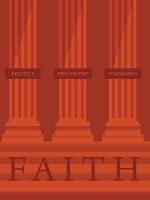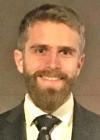The Benefits of a PPE Certificate
By Matthew Arildsen ‘13
In 1920, Oxford University developed a program that combined philosophy, politics, and economics (PPE). The university developed PPE in part to satisfy the need for a curriculum capacious enough to prepare civil servants to perform policy analysis. PPE’s original focus was on the improvement of politics by supplementation with philosophy and economics.
 When we go deeper into the history of these disciplines, the value of PPE is further clarified. The discipline of economics emerged out of a more general discussion of ethics or politics relatively recently. Over the last few hundred years, the complex patterns and instruments of wealth have invited the development of a unique suite of technical skills. At the same time, thinkers have begun to consider the nature and flows of goods themselves, instead of only focusing on the political ends of wealth or the ethical restraints on practices like usury.
When we go deeper into the history of these disciplines, the value of PPE is further clarified. The discipline of economics emerged out of a more general discussion of ethics or politics relatively recently. Over the last few hundred years, the complex patterns and instruments of wealth have invited the development of a unique suite of technical skills. At the same time, thinkers have begun to consider the nature and flows of goods themselves, instead of only focusing on the political ends of wealth or the ethical restraints on practices like usury.
Politics and philosophy have a longer history. Here there is a recognized continuum, from the particular details of political action to the most fundamental and universal questions of morality. Philosophers are often interested in working through political questions. Politicians and their advisors often organize their practices in a philosophical framework. The symbiotic character of philosophy and politics has persisted from the ancient Greeks to the present day.
These disciplines grew so large over time, they had to be distinguished from one another. We can imagine PPE as a reunion of these disciplines. The PPE program is, in the spirit of the liberal arts, preparatory. The social and political world is complex, and to engage that complex world, one must have a diverse range of skills. This program equips students with the knowledge necessary for cultivating those skills throughout life.
Studying PPE at Wheaton adds a Christian foundation to the benefits of PPE’s holistic perspective. The social sciences, both political and economic, teach us lessons in wisdom and humility when understood in the light of God’s Word. Sometimes the principles we believe are true and just end up yielding unexpected consequences when we attempt them in God’s world. Philosophy and the normative side of politics becomes not only about understanding plausible answers to questions about authority, morality, and reason, but also about understanding how the answers currently offered can be both consonant with and opposed to God’s Word.
For questions that span from concrete to very abstract, especially those where reasonable people can disagree, the wide-ranging core competencies of the PPE program at Wheaton are vital. How should tax policy be reformed? What is a just and wise immigration strategy and how do circumstances impact the answer? How do we judge the best strategy for implementing a given policy successfully? Is this policy sensitive or insensitive to hidden costs? I know that my time at Wheaton studying these disciplines prepared me to thoughtfully engage with these kinds of topics and to feel equipped to learn the discipline-specific idioms and tools needed to thrive in these fields.
If we do not know the questions, it is much harder to think critically about the answers being offered in the public square. If we do not know these questions and answers, it can be that much more difficult to craft faithfulness to God’s Word in public spaces. PPE at Wheaton will not only equip students with an understanding of the questions, but will give them the intellectual and moral tools to seek after answers while being “wise as serpents and innocent as doves.”
Find out more about the PPE certificate
 Matt Arildsen ’13, majored in political science, philosophy, and economics. He received a Master of Divinity from Princeton Theological Seminary and this fall he will begin pursuing an M.A. in political science (political theory) at Columbia University
Matt Arildsen ’13, majored in political science, philosophy, and economics. He received a Master of Divinity from Princeton Theological Seminary and this fall he will begin pursuing an M.A. in political science (political theory) at Columbia University

